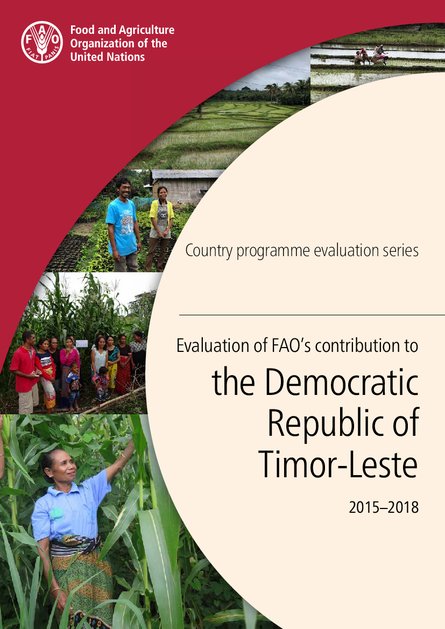
Much of Timor-Leste’s economic infrastructure became severely damaged after decades of conflict. This has negatively impacted many of the country’s essential services such as healthcare, agriculture and education. FAO intervened in support of small-scale family farming with a programme focused on a set of much needed policy formulations and revisions, agriculture data and information generation, climate-resilience farming and ecosystem-based natural resource management.
The market-oriented and value chain initiatives led by most development partners had mixed results. FAO can leverage its comparative strength to consolidate the lessons learned from previous initiatives to identify what worked, how and for whom. FAO can include a rural economic focus to explore equitable opportunities for engaging rural youth in agriculture and the general economics of agriculture.